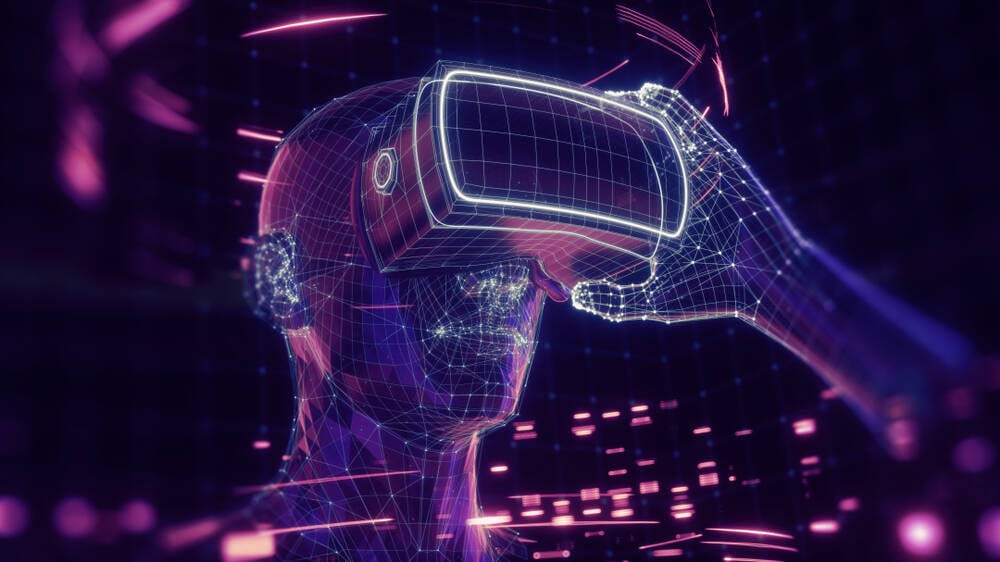We're About To Hit Peak Device Count, Says HTC Veep, As AR Takes Over

The number of screens people use each day has probably peaked, according to Alvin Wang Graylin, global vice president of Taiwanese smartphone maker HTC.
"Right now, there's so many screens in our lives, and the natural thinking is that we're going to keep having a lot more screens," Graylin told the Augmented World Expo (AWE) Asia 2023 event in Singapore today. "And with this trend, you're thinking, hey, it's going to be another five or ten screens over the next few years. No, it's actually the opposite."
"Where we are going now is using the most natural interfaces that we have – our hands, our eyes and mouth, our bodies, and natural ways of how we interact with the physical world," he told the audience.
"What we're going to find is that by having a device on your head, more and more of those screens are going to be replaced by that device on your face. And that device at some point will maybe even get embedded as a chip in your body," he added.
As the gabfest's name implies, he's suggesting a transition to life lived in extended reality (XR) – probably beaming out from a single screen worn on your noggin to replace the collection of smartphones, computers, televisions, tablets and e-readers we use today. The myriad screens in public spaces are also at risk.
Graylin predicted the tech to make XR happen is happening.
"Over the last year, we can see new generations of products coming," Graylin told the conference. He described next-gen XR products as thin and light – and becoming the new norm as more and more screen-bearing devices are replaced with headgear.
- Neuralink says US OK's human experiments with Elon's brain chips
- Metaverses are flopping – hard – says Gartner
- Metaverse? Apple thinks $3,500 AR ski goggles are the betterverse
- Meta virtual reality interrupted by financial reality as thousands lose their jobs
Your correspondent usually welcomes a drop in screen time – provided plenty is still dedicated to these pages. But beyond novelty applications, does anyone really want to be wearing screens on their heads? Or living in simulated environments?
Analyst firm Gartner says no. It recently assessed the metaverse as plagued by low adoption, with users complaining that VR experiences are physically uncomfortable.
Don't worry, said Graylin – the headgear is only there until embedded chips come along.
The prospect of that happening is not entirely far-fetched.
Elon Musk's brain/computer interface startup Neuralink recently received US Food and Drug Administration approval for human clinical trials of its hardware. Neuralink's device has already been tested in monkeys, helping train them to do useful things like play Pong or move a mouse cursor. And scientists in the US have recently detailed how a brain/machine interface allowed a stroke victim to speak with the help of computers.
Yet talk of chips routinely embedded in one's gray matter is an even more extreme vision than those uttered in recent years by the most fervent metaverse boosters.
Graylin conceded that the word "metaverse" may not be around in five or ten years. But what it represents is going to continue and become "the most natural way for us to interact with computers and with each other."
The veep said the metaverse is "really just the 3D version of the internet that we've all known for the last several decades, powered by AI, and mostly interfaced through XR."
"Although for the next probably five years, most people will actually continue interfacing through their existing devices, like 2D phones, laptops and tablets, but interfacing with a 3D world," he predicted.
Buckle up, dear reader. You've got about five years before Reg-O-Vision™ becomes a thing, with VultureBrain™ just over the horizon. ®
From Chip War To Cloud War: The Next Frontier In Global Tech Competition
The global chip war, characterized by intense competition among nations and corporations for supremacy in semiconductor ... Read more
The High Stakes Of Tech Regulation: Security Risks And Market Dynamics
The influence of tech giants in the global economy continues to grow, raising crucial questions about how to balance sec... Read more
The Tyranny Of Instagram Interiors: Why It's Time To Break Free From Algorithm-Driven Aesthetics
Instagram has become a dominant force in shaping interior design trends, offering a seemingly endless stream of inspirat... Read more
The Data Crunch In AI: Strategies For Sustainability
Exploring solutions to the imminent exhaustion of internet data for AI training.As the artificial intelligence (AI) indu... Read more
Google Abandons Four-Year Effort To Remove Cookies From Chrome Browser
After four years of dedicated effort, Google has decided to abandon its plan to remove third-party cookies from its Chro... Read more
LinkedIn Embraces AI And Gamification To Drive User Engagement And Revenue
In an effort to tackle slowing revenue growth and enhance user engagement, LinkedIn is turning to artificial intelligenc... Read more

